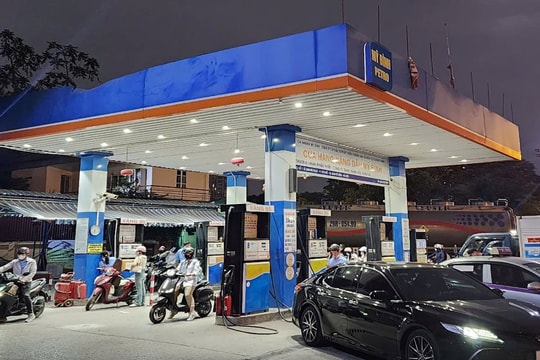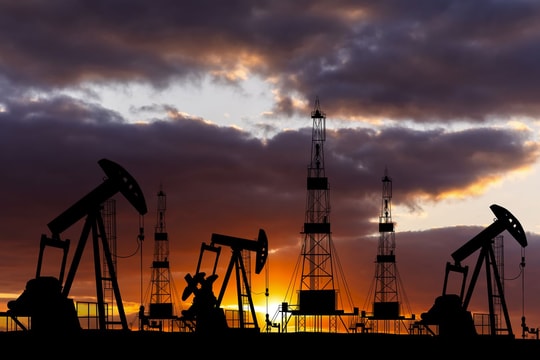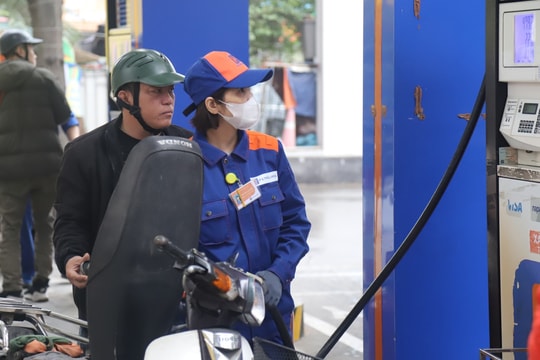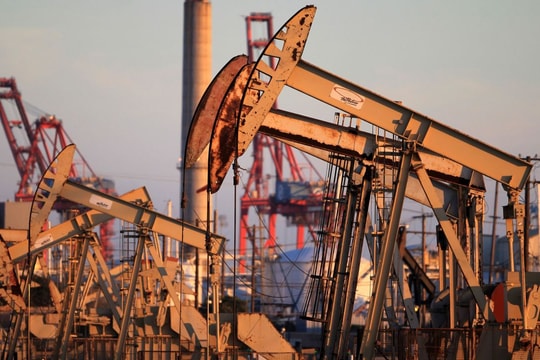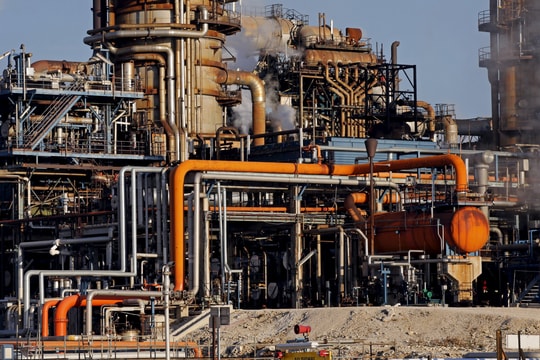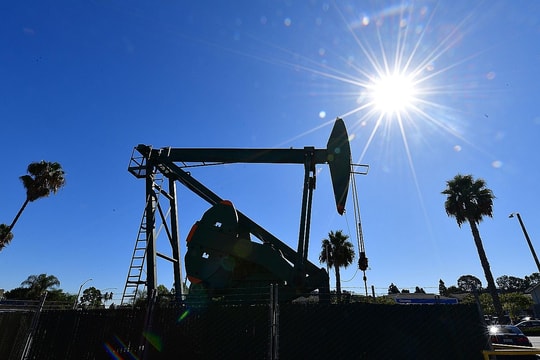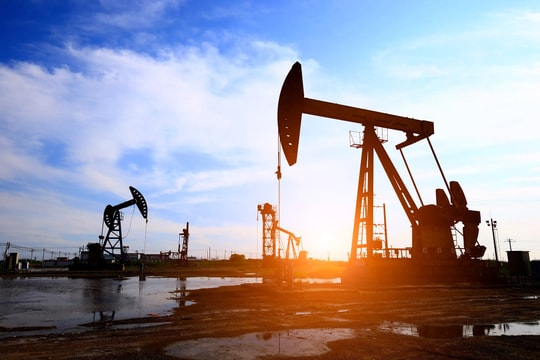Vietnam plans to increase national petroleum reserves
National reserves of gasoline will be increased by 1 month, about 4 times the current amount, from now until 2025.
At the regular press conference on the afternoon of June 16, leaders of the Ministry of Industry and Trade received many questions from the press about the management of petroleum products. Domestically, the retail price of RON 95-III gasoline has increased to a record level of VND32,370 per liter since the afternoon of June 13. However, currentlynational petroleum reservesquite thin, only enough for 5-7 days of use.
Ms. Nguyen Thuy Hien - Deputy Director of the Planning Department (Ministry of Industry and Trade) said that the Ministry of Industry and Trade has developed a project to submit to the Government to increase this reserve level to 1 month from now until 2025, which is about 4 times higher than the current level. The Ministry of Industry and Trade is seeking opinions from the Ministry of Finance and the Ministry of Planning and Investment on this project.
"State resources are currently limited, so the increase of national petroleum reserves will be implemented according to a roadmap from now until 2025. In the short term, if there are not enough warehouses, we will continue to rent warehouses from businesses, but in the future, we will build and invest in our own state warehouses," Ms. Hien informed.
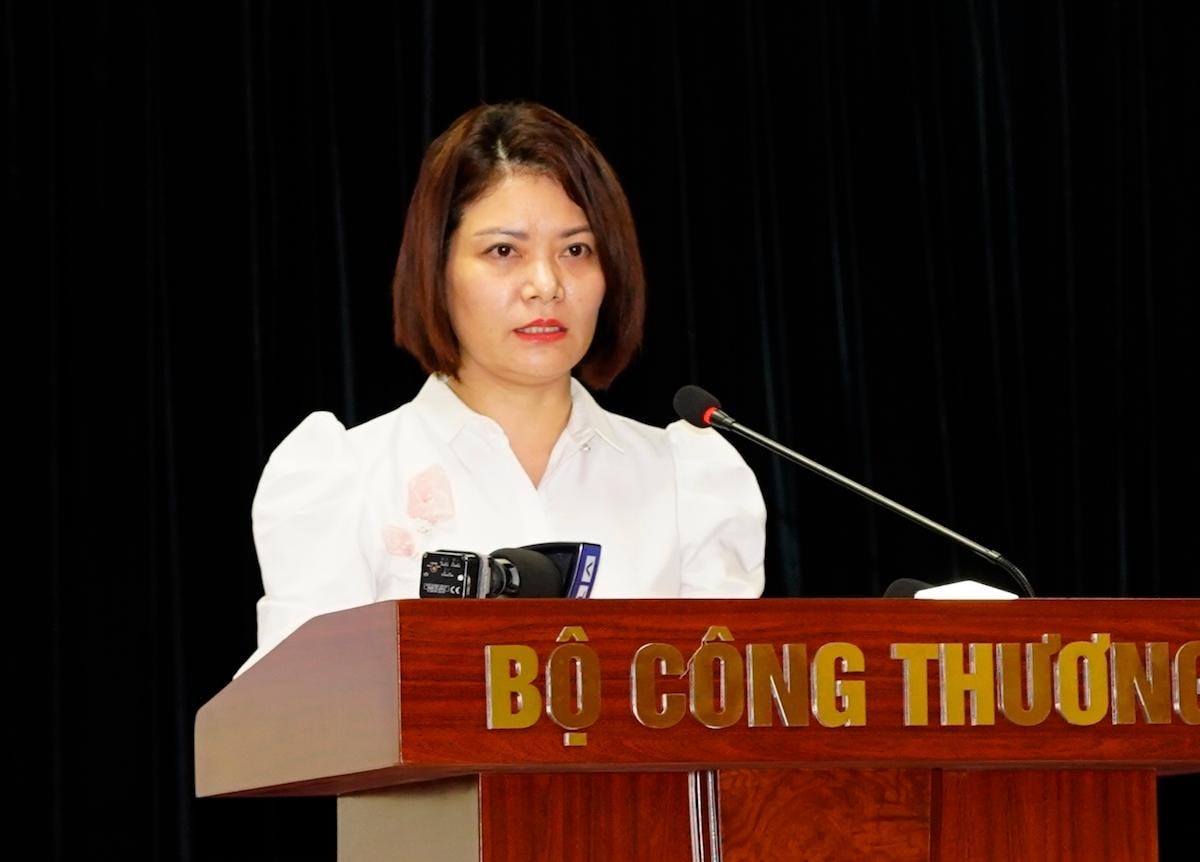 |
| Ms. Nguyen Thuy Hien - Deputy Director of Planning Department (Ministry of Industry and Trade).Photo: Hoang Hoa |
According to current regulations on the structure of Vietnam's petroleum reserves, it comes from 3 sources: Commercial reserves at petroleum trading enterprises (20 days) and distributors (5 days); production reserves at 2 oil refineries and national reserves. Currently, Vietnam's national reserves are relatively thin, about 5-7 days of use, but to ensureenergy security, this level is not enough.
She added that the national petroleum reserve is under a contract with the State to rent a warehouse for storage at a business, and they must commit to ensuring the goods are available whenever needed. However, since the regulation on the national petroleum reserve was issued, this source has not yet been used.
"According to regulations, the first source to be prioritized is the commercial reserves of enterprises, followed by production reserves at oil refineries; and finally, the national reserves. The recent tense situation has not yet used the national reserves, however, this source is currently thin so it is necessary to increase it," the Deputy Director of the Planning Department explained.
In the case of using national reserves to ensure supply, the Ministry of Industry and Trade was asked whether it would help reduce the increase in gasoline prices. Ms. Hien said that the current mechanism for using national reserves does not take into account price stabilization, but the project under construction will add this tool. "We are consulting relevant ministries and branches on this project, so there will be many revisions," she said.
Responding to questions about the information that Malaysia wants to sell 300,000 tons of RON 95 gasoline to Vietnam,Deputy Minister of Industry and Trade Do Thang Hai said, "We respectfully thank the opinions and sources of information to increase the country's gasoline supply in the context of the world's supply and many countries being affected."
He said that the Ministry of Industry and Trade will ensure supply for production, business and people's needs in all situations. However, the Deputy Minister of Industry and Trade said that currently all countries and territories have access to the same price level in the international market. Vietnam is choosing the Singapore market as the basis for calculating gasoline prices.
It is no different with Malaysia, Vietnamese enterprises are importing from this market at the same price as in Singapore. Even if the Government agrees, when working with each other, businesses still follow this general principle," Mr. Hai shared.
 |
| Mr. Do Thang Hai - Deputy Minister of Industry and Trade.Photo: Hoang Hoa |
Previously, at a conference on June 2, the Vietnamese Ambassador to Malaysia said that the agency is ready to support and connect Vietnamese businesses to import Malaysian gasoline to stabilize the domestic market. The two sides are negotiating to export RON 95 gasoline to Vietnam.
Currently, each liter of gasoline in this country costs about 13,000 VND per liter, while the retail price of gasoline in Vietnam has increased to a record level.
Mr. Tran Viet Thai - Vietnamese Ambassador to Malaysia stated in a written response to the Ministry of Industry and Trade, affirming that the gasoline price of 13,000 VND per liter in Malaysia is sold in the domestic market, with subsidies and is not the proposed price for sale to Vietnam.
About gasoline supplyDeputy Minister Hai said that this is the most important factor, ensuring supply for production and export. In the first half of this year, the supply of gasoline and oil has ensured production and business for enterprises and people.
However, Nghi Son Refinery has not yet made any commitment on the quantity of supply in the coming time. Therefore, in addition to the source of goods from Dung Quat Refinery, the Ministry of Industry and Trade is calculating additional import sources to ensure a stable supply.
"In the coming time, we will still prioritize gasoline and oil from domestic production. If there is a shortage, we will import to compensate and ensure supply," he affirmed.
Ms. Le Viet Nga - Deputy Head of the Domestic Market Department added that this agency has directed key enterprises to maintain supply sources, ensuring balance between supply and demand despite the Nghi Son factory's "unstable" operations.
In addition, the Ministry of Industry and Trade has built a digital database for petroleum management, capturing the supply and distribution of goods. Organizing the network and capturing such data will ensure petroleum supply and energy security for the people.
According to the regulator's calculations, on June 13 - the time of domestic retail price management, the average price of finished products in Singapore increased by 41.36 - 84.35% compared to the beginning of the year, while domestic prices only increased by 24.42 - 62.44%. The increase in domestic prices is lower than the world's increase, said the Deputy Head of the Domestic Market Department, thanks to the use of tools such asPetroleum price stabilization fund, 50% reduction in environmental protection tax from April 1st should "reduce shock to domestic gasoline prices".
Deputy Minister Do Thang Hai added that Vietnam has psychological inflation, so when gasoline prices increase, the prices of many other goods will increase, affecting people. At this time, the Petroleum Stabilization Fund is like "a regulating tank, when full, save it, when hungry, use it, so it has a lot of value".
"In fact, the price increase recently has helped the price stabilization fund reduce prices. However, when the fund is negative, the fund cannot be abused," he commented.
Currently, the Ministry of Finance has proposed that the Government drastically reduce the environmental protection tax bracket, but from the perspective of one of the two agencies managing petroleum, Mr. Hai said, it is possible to consider further reducing import tax, because "what can be done should be reduced". However, he said that it is necessary to calculate because it is not good to reduce a lot because "there are also trade-offs when reducing tax".
"The Government and the inter-ministerial committee are working hard and will make proposals to competent authorities as soon as possible. If the two measures of using the Petroleum Stabilization Fund and reducing taxes run out of space, we can consider using the social security fund to support the poor and low-income people," he affirmed.

